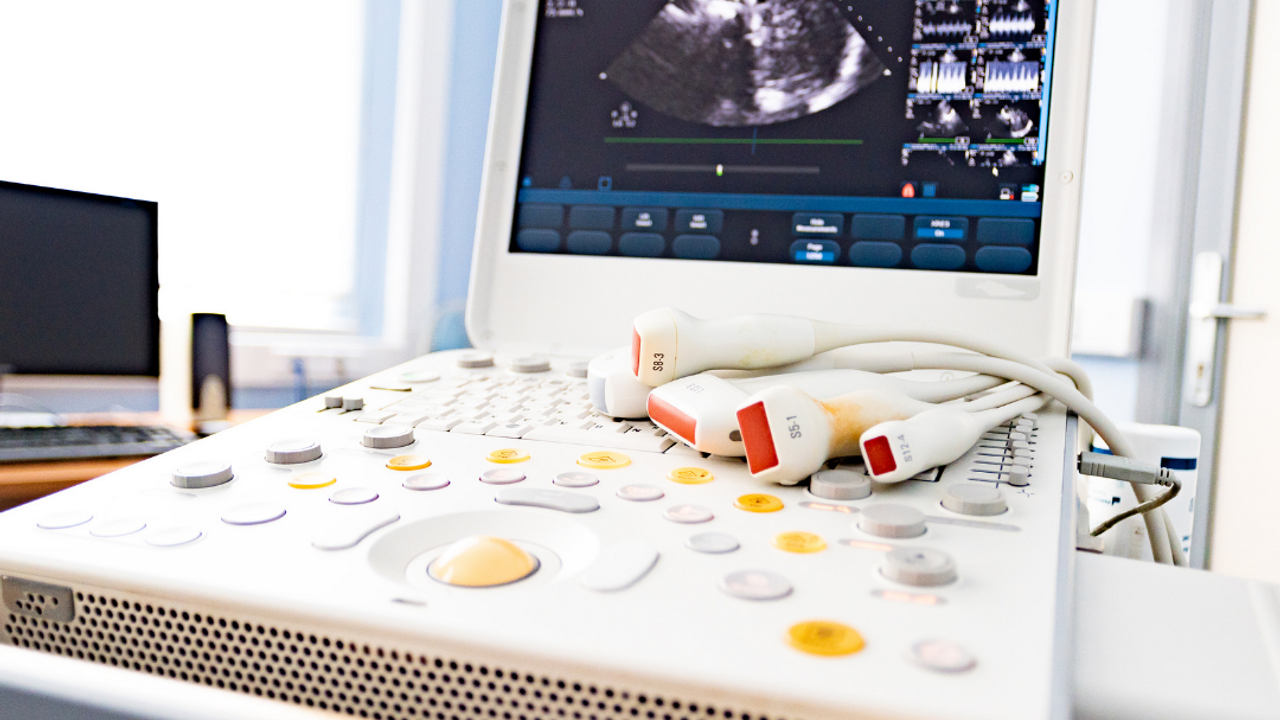How To Choose The Right Ultrasound Machine For Your Practice
May 12, 2022
When people talk to me about ultrasound machines, it usually goes something like this.
”Which ultrasound machine should I purchase?”
“The choice is so overwhelming.”
“There are so many options. I'm not sure how to narrow down what's out there for my practice.”...
In my experience, the most important factor that everyone is looking for is the best image quality for their budget. So, I've come up with some top tips for you to really hone in on what you need in an ultrasound machine.
1. Your budget
The first thing you must decide is your budget. As with most things in life, you get what you pay for. The more expensive it is, the more it can do, and the image quality is usually better. Give this area some serious consideration as you want to invest in a machine that you won't outgrow.
2. How much to charge?
Remaining on the subject of money, think about how much you'd like to charge for a scan. This will be heavily influenced by the type of clientele you serve, but it will assist you in determining how many scans you're likely to perform per week, month, or year.
This exercise will then assist you in determining how long it will take you to pay off your machine and when you will begin to make a profit.
3. What probes do you need?
The next thing you need to decide is what probes you will need. Think about what species you are going to or would like to scan. A linear probe, for example, might be high on your wish list if you're scanning a lot of cats and small animals. Most practices usually want a micro convex probe.
Consider what part of the animal you will be scanning in addition to the species. Are you mainly going to be focused on abdominal scanning? In which case, you might consider a nice micro convex probe, or maybe two if you want to scan large dogs and smaller animals.
Also, think about cardiac scanning; you might want a phased array probe if this interests you. Or, if muscular-skeletal parts are more your thing, you might want a linear probe.
4. Size of the machine
Think about the size of your practice. If you've got plenty of space, you could opt for a cart-based machine; these tend to be more expensive, but actually, you can do a lot more with them. If you're a little bit more limited for space and need to put it away sometimes, you might want a laptop-style machine. These are extremely useful and of a high quality these days.
Or, if you’re really limited on space, for example, if you're a mobile clinic or interested in cage side-scanning, then a handheld machine might be the best option.
5. Decide whether you want Doppler or not.
If you choose a machine that doesn't have Doppler, you might want to check whether having Doppler is an upgrade that will be available to you later on. If you can't, you'll effectively close the door on furthering that skill!
Reasons to consider getting Doppler is if you're thinking of doing any ultrasound-guided fine-needle aspirates, cystocentesis, or having a closer look at tumours and vascular supply. Or if you're looking at bladders and want to determine whether a soft tissue opacity is to do with a tumour or a blood clot.
Also, if you're thinking about cardiac scanning (the next level other than BMO 2d), adding Doppler will enable you to look at any turbulence within the heart. If you are going to do cardiac scanning, many machines, Doppler is a little too slow to give you a good image quality - it can be tough to interpret.
My advice is it’s worth paying a bit more for Doppler to ensure that you are getting the best use out of it.
6. Nice to haves
And lastly, there are the nice to have functions.
- Would you prefer to have a touchscreen?
- Would you like to have multiple probes plugged in at once so that you don't have to move the machine around during an examination or plug in and unplug different probes?
These might be nice to have options, but they might also be important to you.
These questions are a great starting point to help you narrow down what ultrasound machine is best for your practice. Moving on from these questions, I also have two resources to help you further.
First up, I have carried out numerous ultrasound machine reviews, which you can find here on my website.
FOVU Ultrasound Machine Reviews >>
Have a browse at your leisure and let them guide you to finding the right machine for your practice.
Second, on my list of resources is a fun and interactive quiz. The quiz asks you the same questions and then narrows it down to one specific machine that fits all of your answers.
And if, after all that, you still feel it would be beneficial to talk to someone, then get in touch - I’d love to help you.

